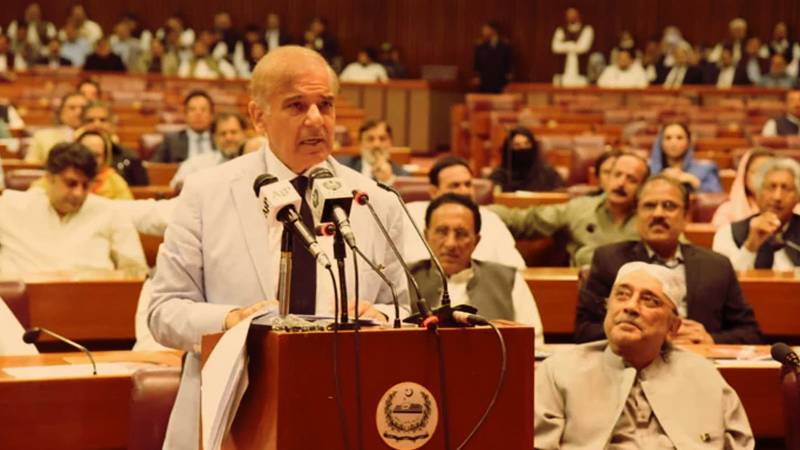
Pakistan Muslim League-Nawaz (PML-N) leader Shehbaz Sharif has become Pakistan’s prime minister for the second time after the elections were blemished by rigging allegations and controversies.
The PML-N, the Pakistan Peoples Party (PPP), and the Muttahida Qaumi Movement-Pakistan (MQM-P), held prolonged negotiations to finalize the power-sharing formula as neither had grabbed majority in February 9 elections.
Sharif was expected to become the 24th prime minister of Pakistan since he had secured the support of seven parties, despite significant complaints of rigging. He secured 201 votes, while his opponent, PTI leader Omar Ayub stood second with 92.
Pakistan Tehreek-e-Insaf (PTI) was subjected to severe restrictions in the lead up to the election, and its candidates contest as independents. However, the party acquired 102 seats indicating its popularity. Whereas, the PML-N came in second with 73 seats, and the PPP won 54 seats.
As the National Assembly speaker declared Shehbaz the new premier, PTI and its ally Sunni Ittehad Council (SIC) lawmakers surrounded the newly-elected prime minister’s chair and raised slogans against him. The SIC is a sectarian right-wing political party.
The newly elected PM delivered his first speech amid slogans of 'Sher' (lion) and 'Chor' (thief).
In the speech, Sharif promised to lead Pakistan out of its current difficulties. "If we band together and decide to alter the fate of Pakistan, God willing, we shall overcome these hurdles and restore Pakistan to its proper place," he added.
He further stated that his government would introduce a technological mechanism to curb tax theft, which would help to minimise inflation, increase job opportunities, and the country would flourish. Sharif also vowed to provide efficient public transport and state-of-the-art medical facilities to the nation.
Focusing on regional relations, Sharif emphasised that his administration will preserve friendly ties with neighbouring countries and introduce visa-free entry to people from brotherly countries.
